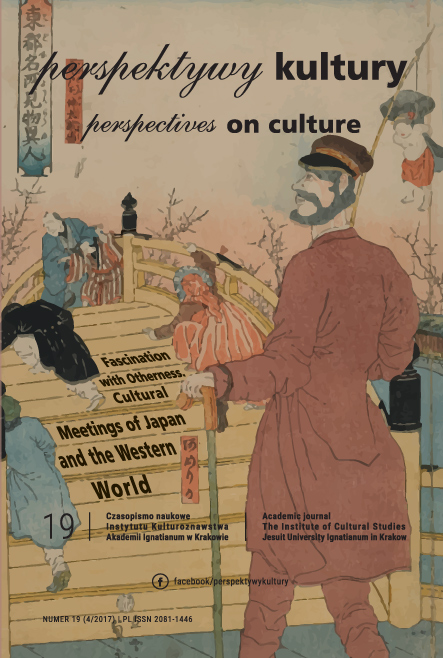Measures of direct coercion in the perspective of patients and medical staff. The perspective in the context of multiculturalism
Abstract
The psychiatric hospital is a distinct cultural circle, governed by its own rules and regulations. This means interfering with the patient’s privacy and the violation of his bodily integrity. The characteristic fea- ture of the psychiatric ward is the so-called. “paternalism” manifested by legitimate interference in the patient’s personal space, for his good. In health care, the notion of “coercion measures” is most often associ- ated with a psychiatric patient, in which case direct coercive measures are required.
The aim of the study was to analyse the perception of coercive measures by two groups of patients and the medical staff. The study involved 307 persons, 136 staff members and 171 patients who com- pleted the MAVAS questionnaire, to assess attitudes towards aggres- sion and coercive measures at the ward.
Research shows that the differences exist in the perception of ag- gression and legitimacy of coercion between patients and medical staff. Patients emphasize that their aggression in the ward is closely related to the conditions in the hospital, perceived by them as difficult, while the team members highlight that the assault is highly related to pa- tients sickness. Systemic changes are necessary to address divergent di- vergences that have a significant impact on the quality of healthcare.
References
BUJNY J. 2007. Prawa pacjenta – między autonomią a paternalizmem. Warszawa: Wydawnictwo C.H. Beck.
CRISP R.J., TURNER R. N. 2015. Psychologia społeczna, Warszawa: Wydaw- nictwo Naukowe PWN.
DUXBURY J. 2002. An evaluation of staff and patient views of and strategies employed to manage inpatient aggression and violence on one mental health unit: a pluralistic design. “Journal of Psychiatric and Mental Health Nur- sing” 9: 325-337.
DUXBURY J., HAHN S., NEEDHAM I., PULSFORD D. 2008. The Management of Aggression and Violence Attitude Scale (MAVAS): a cross national comparative study. “Journal of Advanced Nursing” 62 (5): 596-606.
DUXBURY J., PULSFORD D. 2013. Aggression in high secure hospital: staff and patient attitudes. “Journal of Psychiatric and Mental Health Nursing” 20: 296-304.
GAUDINE A., LEFORT S.M., LAMB M., THORNE L. 2011. Ethical conflicts with hospitals: the perspective of nurses and physicians. “Nursing Ethics” 18 (5): 756-766.
GOFFMAN E. 2011. Instytucje totalne. O pacjentach szpitali psychiatrycznych i mieszkańcach innych instytucji totalnych. Sopot: GWP.
HAHN S., NEEDHAM I., ABDERHALDEN C., DUXBURY J.A.D., HAL-
FENS R.J.G. 2006. The effect of a training course on mental health nurses’ attitudes on the reasons of patient aggression and its management. “Journal of Psychiatric and Mental Health Nursing” 13 (2): 197-204.
HEM M.H., GJERBERG E., HUSUM T.L., PEDERSEN R. 2016. Ethical challenges when using coercion in mental healthcare: a systematic literature review. “Nursing ethics” Mar 1. [Epub ahead of print].
HUSUM T.L., BJORNGAARD-FINSET A., RUUD T. 2011. Staff attitudes and thoughts about the use of coercion in acute psychiatric wards. “Social Psychiatry and Psychiatric Epidemiology” 46 (9): 893-901.
HUSUM T.L., FINSET A., RUUD T. 2008. The Staff Attitude to Coercion Scale (SACS): Reliability, validity and feasbility. “International Journal of Law and Psychiatry” 31 (5): 417-422.
KMIECIAK B. 2010. Poszanowanie prywatności pacjenta szpitala psychiatrycz- nego – kontekst prawny, etyczny oraz społeczny. „Psychiatria i Psychologia Kliniczna” 10 (1): 31-37.
KUCZMA P. 2012. Prawa człowieka w zarysie. Polkowice: Wydawnictwo Dol- nośląskiej Wyższej Szkoły Przedsiębiorczości i Techniki.
LEPIEŠOVÁ M., TOMAGOVÁ M. 2014. Analysis of The MAVAS Instrument to Assess The Management of Patient Aggression. “Central European Journal of Nursing and Midwifery” 5 (3): 127-135.
LETKIEWICZ S. 2010. Relacja lekarz-pacjent w dobie komercjalizacji medycy- ny. „Przegląd Urologiczny” 6 (64): 56-71.
LISOWSKA A. 2014. Ograniczenie autonomii jednostki, a może ochrona konsty- tucyjnych praw i wolności człowieka? Normatywne aspekty stosowania „przy- musu bezpośredniego” w psychiatrii. „Filozofia Publiczna i Edukacja De- mokratyczna” 3 (2): 111-138.
MILLER A. 2013. Szpital psychiatryczny jako instytucja totalna. Socjolo- giczne studium przypadku. Warszawa: Wydawnictwo Uniwersytetu Warszawskiego.
NEWTON-HOWES G., STANLEY J. 2012. Prevalence of perceived coercion among psychiatric patients: literature review and meta – regression modelling. “The Psychiatrics” 36: 335-340.
STASIUK-KRAJEWSKA K. 2014. Szpital jako instytucja totalna – dyskursyw- na i instytucjonalne uwarunkowania komunikacji. „Dziennikarstwo i Me- dia” 5: 161-179.
SZMUKLER G. 2015. Compulsion and “coercion” in mental health care. “World Psychiatry” 14 (3): 259-261.
TAVARAGI M. 2015. Coercive Interventions. “The International Journal of In- dian Psychology” 1 (6): 159-167.
Ustawa z dnia 19 sierpnia 1994 r. o ochronie zdrowia psychicznego, Dz.U. 1994, nr 111, poz. 535.
Copyright (c) 2017 Jesuit University Ignatianum in Krakow

This work is licensed under a Creative Commons Attribution-NoDerivatives 4.0 International License.
Autor, zgłaszając swój artykuł, wyraża zgodę na korzystanie przez Wydawnictwo Uniwersystet Ignatianum z utworu na następujących polach eksploatacji:
- utrwalania utworu w formie papierowej, a także na nośniku cyfrowym lub magnetycznym;
- zwielokrotnienia utworu dowolną techniką, bez ograniczenia ilości wydań i liczby egzemplarzy;
- rozpowszechniania utworu i jego zwielokrotnionych egzemplarzy na jakimkolwiek nośniku, w tym wprowadzenia do obrotu, sprzedaży, użyczenia, najmu;
- wprowadzenia utworu do pamięci komputera;
- rozpowszechniania utworu w sieciach informatycznych, w tym w sieci Internet;
- publicznego wykonania, wystawienia, wyświetlenia, odtworzenia oraz nadawania i reemitowania, a także publicznego udostępniania utworu w taki sposób, aby każdy mógł mieć do niego dostęp w miejscu i czasie przez siebie wybranym.
Wydawca zobowiązuje się szanować osobiste prawa autorskie do utworu.





